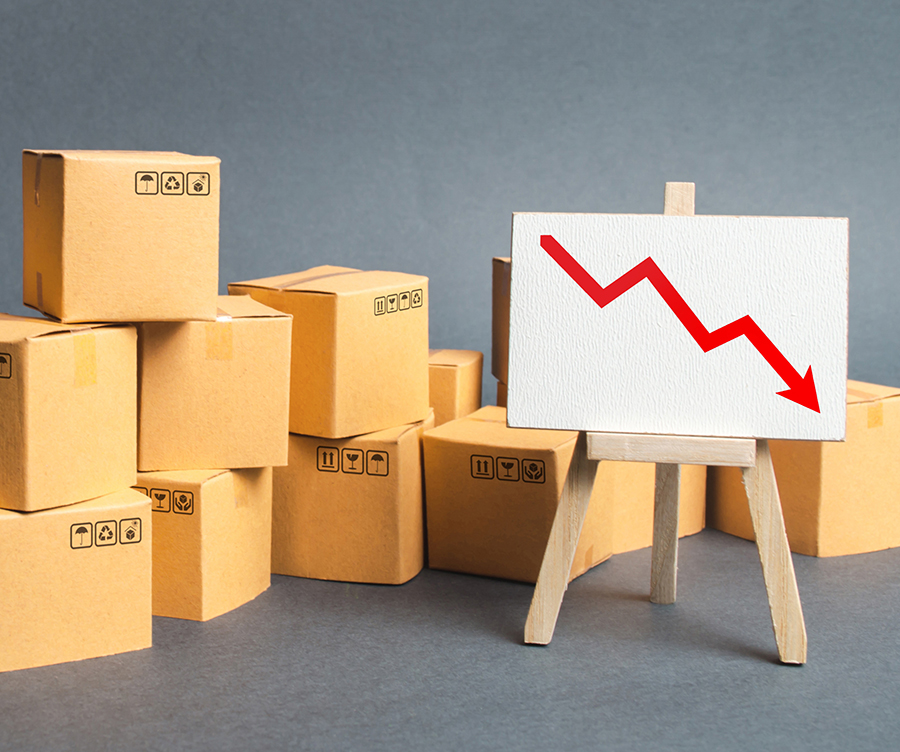The World Trade Organization (WTO) has cut its 2022 trade growth outlook, saying prospects for the global economy have “darkened” amid the Russian invasion of Ukraine.
The international body says it now expects merchandise trade volume growth of 3.0% in 2022 – down from its previous forecast of 4.7% and well below the increase of 9.8% seen in 2021.
“The last few years have been tumultuous for the world economy,” says Ngozi Okonjo-Iweala, director-general of the WTO. “The Covid-19 pandemic continues to deliver economic shocks in different parts of the world, and we must now brace for the fallout from the war in Ukraine. It’s now clear that the double whammy of the pandemic and the war has disrupted supply chains, increased inflationary pressures, and lowered expectations for output and trade growth.”
The most immediate economic impact of the conflict has been a sharp rise in commodity prices. Despite their relatively small shares in world trade and output, Russia and Ukraine are key suppliers of essential goods including food, energy, and fertilisers, supplies of which are now threatened by the war. Grain shipments through Black Sea ports have already been halted, with potentially dire consequences for food security in poor countries.
A closer look at the figures shows a mixed picture around the world. The Middle East is seeing higher oil prices boost export revenues, allowing countries in the region to import more. As such, the WTO is forecasting 2022 export volume growth of 11.0% for the region, and a 11.7% increase in imports. Asia, which outperformed the global average in trade volume growth in 2021, is likely to put in a more muted performance this year, with both exports and imports tipped to grow by just 2.0%.
The Commonwealth of Independent States (CIS) – which includes Russia – is forecast to see export volumes grow by 4.9% this year, largely because Russia is still able to export fuels. “If the situation were to change, we might see stronger export volume growth in other fuel producing regions”, the WTO says. On the import side, the WTO is forecasting a decline of 12% for the region, as sanctions prevent many countries from exporting goods to Russia and Belarus.
The WTO’s trade forecasting model captures the direct impact of the war in Ukraine, including destruction of infrastructure and increased trade costs; the impact of sanctions on Russia, including the blocking of Russian banks from the Swift settlement system; and reduced aggregate demand in the rest of the world due to falling business and consumer confidence.
However, with little hard data to rely on, the WTO notes that its estimates are “less certain than usual”, adding that merchandise trade volume growth in 2022 could be as low as 0.5% or as high as 5.5%.
Responding to a question from GTR at a press conference held today, Coleman Nee, WTO senior economist, said that the downside risks to the forecast outweigh the upsides. “Things that could lead us to one or the other end of the interval, most likely on the downside I suspect, would be a worsening of the conflict in Ukraine and also perhaps sanctions directly on exports of Russian oil,” he said. “On the upside, perhaps there might be some sort of a resolution of the conflict, but at the moment I would say most of the risks are heavily on the downside.”
In response to the WTO’s lowered trade projections, John Denton, secretary general of the International Chamber of Commerce, is calling for governments to do more to support exporters amid an ever-more volatile economic backdrop. “As we’ve said consistently in recent weeks, governments and development banks need to take a far more proactive stance to cushion the real economy from the spillover effects on the sanctions imposed on Russia. The WTO’s downgraded forecast must act as a wakeup call in this regard,” he says.
“While we fully respect the decision of governments to impose sanctions on the Russian Federation, corresponding political interventions are also urgently needed to reopen essential trade corridors for food and agricultural inputs to avoid a global humanitarian crisis.”
For its part, the WTO says it can play a “pivotal role” by providing a forum where countries can discuss their differences without resorting to force, with Okonjo-Iweala adding that it “deserves to be supported” in that mission. The WTO is now calling for governments and multilateral organisations to work together to facilitate trade.







